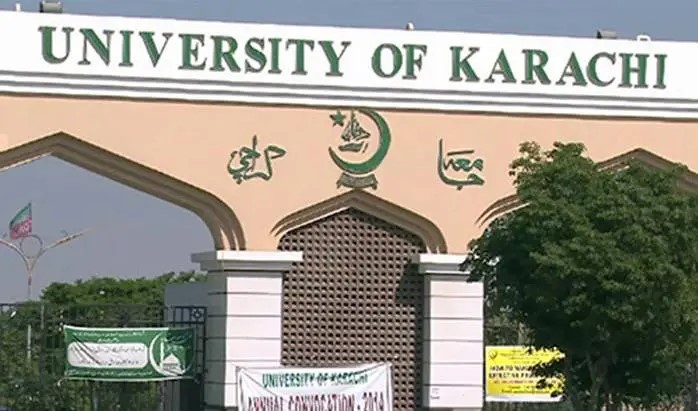Karachi: To make respiratory disease treatment readily accessible, reasonably priced, and environmentally friendly, students from the University of Karachi’s pharmacy department have created what they say is the smallest rechargeable nebulizer in the world.
For those with respiratory disorders, this compact nebulizer— less than an inch wide—offers a practical solution that may be used at home, at the workplace, or on the go.
The creators, senior pharmacy students, clarified that wintertime increases in air pollution make respiratory conditions like asthma more prevalent.
They claim the pocket-sized gadget lasts up to 35 minutes on a single charge and is a convenient and portable substitute for conventional nebulizers.
Also read: All Education Boards in Pakistan Increase HSSC Exam Fees Amid Financial Crisis
The device is soundproof and can be charged via Type-C or micro USB ports, making it suitable for discrete use in various settings. It runs on rechargeable batteries and is wire-free, compared to traditional nebulizers, which are frequently large, noisy, and need a steady power source.
The principal creator, Abdul Rehman, revealed that their design provides an inexpensive choice priced under Rs 2,000, whereas many nebulizers cost between Rs 8,000 and Rs 10,000.
He explained, “We wanted to create a nebulizer that was not only effective but also accessible to families who may struggle with the high costs of medical devices.”
The nebulizer is also environmentally beneficial because it is composed of bio-plastic, which lessens its influence on the environment. This makes it a sustainable and health-saving gadget.
Children and the elderly, who are more susceptible to respiratory illnesses, should use nebulizers. The device’s user-friendly form makes it appropriate for patients of all ages, Abdul Rehman said, particularly in settings like homes, workplaces, and schools where conventional nebulizers would be less useful.
Also read: Canada Restricts SDS Study Visa Applications from Pakistan
Abdul Rehman Siddiqui, Taha Ishaque, Syed Waliuddin, Syeda Arshia Maruf, Zohaib Salman, Maheem Zaidi, Parihan Khan, and Tooba Saleem are among the team members who believe their project shows how Pakistani students can make significant contributions to science and technology.
They urged the government and academic institutions to fund and encourage these developments, which might enhance healthcare options in Pakistan and all over the world.

